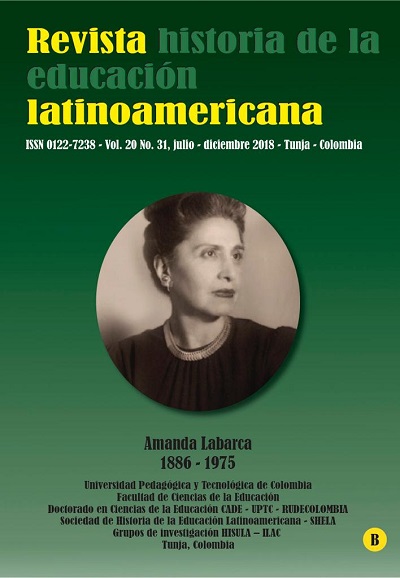The Escuela Graduada Model. Similarities with the current educational model in Spain

Abstract
The situation of the Spanish educational system at the end of the 19th century led to the need to modernize the models in force at that time. In this context, a new educational approach emerge in the country, the Escuela Graduada. This model provides new techniques, structures and innovative methods to mitigate the lagging position of education in Spain compared to other European countries. First of all, there was a need to open up to all social levels, since at that time education was limited only to the most privileged sectors.
We intend to offer a general view about the implications of the introduction of this model and what it meant for the Spanish school system during the first third of the last century. The opposition of some teaching sectors and the struggle with the Unitarian School allow us to contrast both models. We analyzed the most important aspects of the Escuela Graduada model, from which arose a new educational approach that could only be carried out with a modern school adapted to the circumstances of the time. In addition, we compared it with the current educational model, in order to verify the validity of those improvements.
Keywords
Educational systems; educational experience; Escuela Graduada; Unitary School system
Author Biography
Óscar Navarro Martínez
Doctor en Pedagogía por la UCLM, licenciado en Ciencias de la Educación por la UNED y maestro de Educación Física por la UCM. Ha trabajado como maestro desde 1997. Actualmente trabaja en la Facultad de Educación de Ciudad Real de la Universidad de Castilla-La Mancha. Sus principales áreas de interés son la elaboración y aplicación de materiales multimedia con alumnos de la etapa de Educación Primaria, la utilización de sistemas LMS y prácticas de e-learning con alumnos sin y con necesidad específica de apoyo educativo.
References
- • Viñao Frago, Antonio. Innovación pedagógica y racionalidad científica. La escuela graduada pública en España (1898-1936). Madrid: Ediciones Akal, 1990.
- • Viñao Frago, Antonio. “La Renovación de la Organización Escolar: La Escuela Graduada”. En Psicología y pedagogía en la primera mitad del siglo XX, editado por Javier Sáenz Obregón. Madrid: UNED, 2003, 73-104.
- • Ossenbach Sauter, Gabriela. “La labor de Santiago Hernández Ruiz como experto de la UNESCO en América Latina, 1959-1966”. En Santiago Hernández Ruiz (1901-1988) y la educación de su tiempo, editado por Alejandro Tiana Ferrer y Víctor Manuel Juan Borroy. Zaragoza: UNED-Calatayud, 2002, 253-276.
- • Hernández Ruiz, Santiago. La escuela unitaria completa. La Habana: Centro Regional de la UNESCO, 1961.
- • Viñao Frago, Antonio. “Espacios escolares, funciones y tareas: La ubicación de la dirección escolar en la escuela graduada”. Revista Española de Pedagogía, no. 228 (2004): 279-304.
- • Viñao Frago, Antonio. “El maestro, lo que más importa. Cossío y las escuelas graduadas de Cartagena (1900)”. Bordón. Revista de pedagogía, no. 258 (1985): 413-420.
- • Foucault, Michel. Vigilar y castigar. Madrid: Siglo XXI, 1986.
- • Ley Orgánica 2/2006, de 3 de mayo, de Educación. Boletín Oficial del Estado, 4 de mayo de 2006, núm. 106 [consultado el 16 de octubre de 2017]. Disponible en: https://www.boe.es/buscar/pdf/2006/BOE-A-2006-7899-consolidado.pdf
- • Ley Orgánica 8/2013, de 9 de diciembre, para la mejora de la calidad educativa. Boletín Oficial del estado 10 de diciembre de 2016, número 298 [consultado el 16 de octubre de 2017]. Disponible en: https://www.boe.es/buscar/pdf/2013/BOE-A-2013-12886-consolidado.pdf
- • Ley Orgánica 1/1990, de 3 de octubre, de ordenación general del sistema educativo. Boletín Oficial del Estado 4 de octubre de 1990 [consultado el 16 de octubre de 2017]. Disponible en: http://www.educacion.gob.es/mecd/oposiciones/files/logse.pdf
- • Constitución Española. Boletín Oficial del Estado, 29 de diciembre de 1978, núm. 311, pp. 29313 a 29424.
